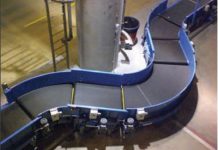
Denso Corp., which has its North American headquarters in Southfield, and Canada’s BlackBerry Ltd. have announced their integrated human machine interface digital cockpit system with BlackBerry QNX technology has shipped in the first vehicles by Japanese automotive manufacturer Subaru.
The technology, called Denso Harmony Core, is expected to be available in the U.S. this fall in the 2020 Subaru Legacy and Outback.
Co-developed by BlackBerry and Denso in collaboration with Subaru, the solution uses BlackBerry QNX Hypervisor technology to enable integrated control of in-vehicle human machine interface systems.
Today, vehicles are equipped with multiple human machine interface systems, which require several device-specific operating systems to work in unison. Because the operating systems are independently controlled by multiple microcontrollers, it has not been possible to unite and coordinate them to display content and sound in a uniform way.
The BlackBerry QNX Hypervisor technology enables the independence of several operating systems with different characteristics and controls the integration with a single microcomputer.
“Software is the driving force in next-generation automotive design,” says John Wall, senior vice president and general manager of BlackBerry QNX. “As cars become more data-driven and automated, they demand functional, secure, and trusted in-vehicle software.”
According to Data Bridge Market Research, the global automotive digital cockpit market is expected to have a value of more than $41 billion by 2026.
“With the rapid development of technology for self-driving and electric vehicles, the value of cars is about to change significantly,” says Atsushi Hayashida, director and head of cockpit systems business unit for Denso. “By collaborating with other companies and research institutes, refining the technology and accelerating product and service delivery to help manufacturers deliver next generation vehicles, Denso is creating new value for the global smart mobility society.”
Subaru is the first vehicle manufacturer in the world to commercially deploy the platform. Going forward, other automobile manufacturers are expected to launch models with the system.
“Subaru is synonymous with innovation, quality, and building trusted vehicles that customers can rely on,” says Tatsuya Okuno, vice president and chief general manager of engineering DIV.1 of Subaru Corp. “… This is a world-first in new automotive digital experiences that seamlessly combines the cluster, head unit, infotainment system, and entertainment screens with the class-leading safety Subaru is known for. We are excited to roll-out the Harmony Core HMI technology in future car models with BlackBerry and Denso.”
Denso is a $48.3 billion global mobility supplier that develops advanced technology and components for most vehicle makes and models. It has 211 facilities in 35 countries and produces thermal, powertrain, mobility, electrification, and electronic systems.











